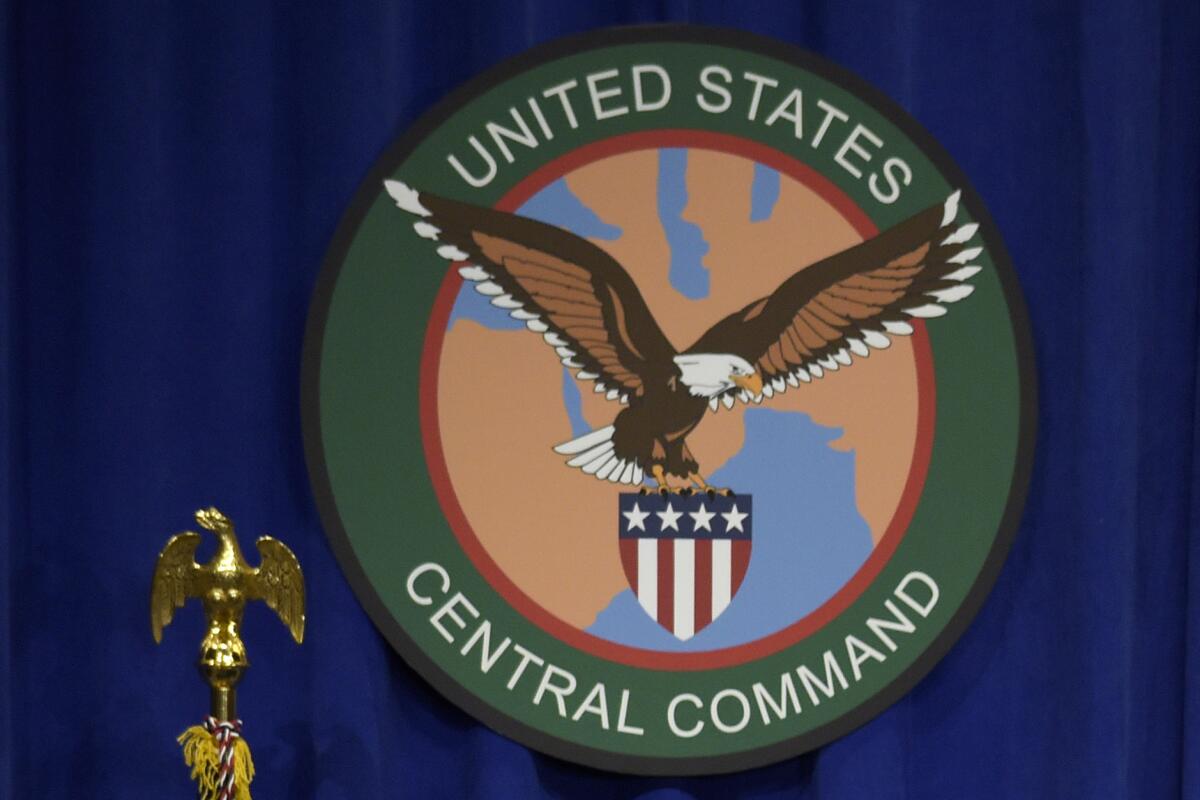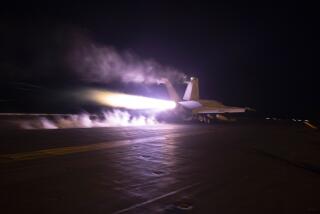U.S. kills 3 Islamic State leaders in 2 Syria operations

WASHINGTON ŌĆö U.S. forces killed three senior Islamic State leaders in two separate military operations in Syria on Thursday, including a rare ground raid in a portion of the northeast that is controlled by the Syrian regime, U.S. officials said.
According to officials, U.S. special operations forces conducted a raid near the village of Qamishli, killing IS insurgent Rakkan Wahid al Shamman, wounding another and capturing two others.
Later Thursday, the U.S. conducted an airstrike in northern Syria, killing Abu Ala, the No. 2 Islamic State leader in Syria, and Abu MuŌĆÖad al Qahtani, another IS leader, officials said.
A U.S. official said a small number of U.S. troops were on the ground near Qamishli for less than an hour to conduct the ground raid. The U.S. doesnŌĆÖt often do missions on territory that is under the control of Syrian President Bashar Assad. The officials spoke on condition of anonymity to discuss details of the raid.
In a statement, U.S. Central Command said al Shamman was known to facilitate the smuggling of weapons and fighters in support of Islamic State operations. According to the statement, no civilians or U.S. troops were killed or injured in the raid.
Additional information about the airstrike was not provided.
The U.S. continues to have about 900 forces in Syria to advise and assist Syrian Democratic Forces in the fight against the Islamic State group.
A British man nicknamed one of the ŌĆśBeatlesŌĆÖ by his captives because of his English accent has been sentenced to life in prison for his role in the deaths of four U.S. hostages captured by Islamic State.
One U.S. official said that, for the first time in a long time, the U.S. did not use its deconfliction phone line with Russia to notify them of the U.S. troop raid and presence there. The official, who spoke on condition of anonymity to provide details, said the lack of deconfliction was more the result of operational security and not a reaction to RussiaŌĆÖs war on Ukraine.
The U.S. and Russia have used the deconfliction line to avoid any possible accidents or incidents when U.S. forces are in the northeastern region of Syria where Russian forces also operate.
More to Read
Sign up for Essential California
The most important California stories and recommendations in your inbox every morning.
You may occasionally receive promotional content from the Los Angeles Times.










